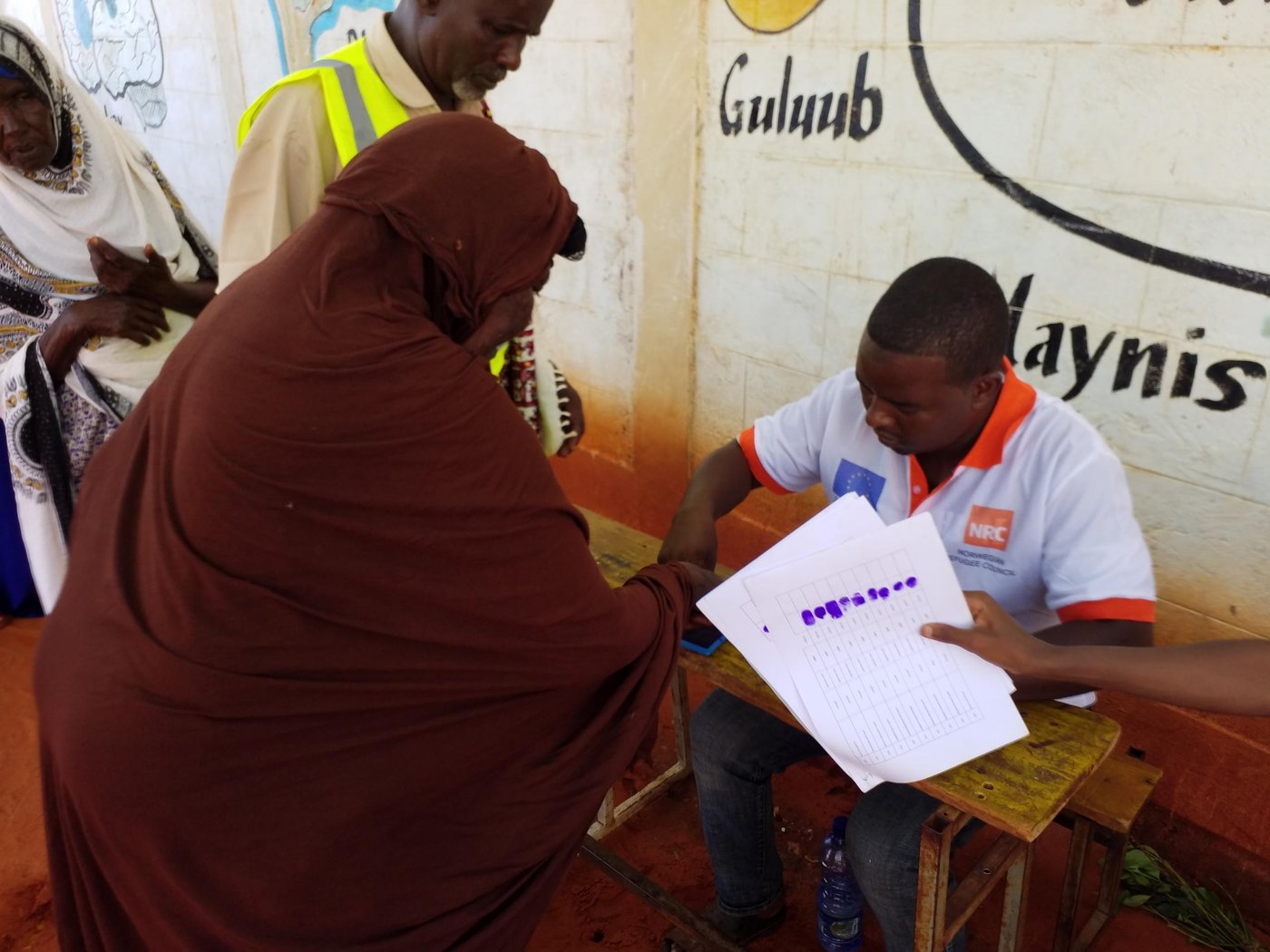However, disaster struck in 2017 when an overwhelming drought swept through their region, affecting every area they thought of escaping to in search of water and pasture for their animals. The drought was so devastating that it earned the grim nickname "equaliser" among the Somali pastoralists. To make matters worse, an outbreak of Acute Watery Diarrhoea (AWD) wreaked havoc in Jarar zone, including Gashamo, taking away Fadumo's son-in-law, the only male who was able to work.
Desperate for survival, Fadumo and her sister, a mother of five, sought refuge at the Gashamo camp for internally displaced people, 120 km away from their home. Despite receiving some food aid and support from the host community, their lives remained shattered, and hope seemed elusive.
In 2022, another devastating drought struck Gashamo, causing the barter gifts from the host community to disappear.
"At this time, we lost hope and felt we couldn't continue to survive," Fadumo recalls, "but we never stopped praying."
The Norwegian Refugee Council (NRC) arrived at Gashamo and introduced a Multi-Purpose Cash (MPC) Transfer Programme to assist vulnerable displaced people and their host communities who have been severely affected by the drought. Fadumo's family was among those identified to participate due to their vulnerability.
"With the cash assistance from NRC, we regained hope and earned the trust of shop owners," Fadumo joyfully shares. The programme provided 4,140 households, including Fadumo's, with two rounds of cash to meet their basic needs.
"I used the first round to repay the shop loan and bought essential food and clothes for the children," Fadumo proudly states, clutching her cash entitlement with gratitude.
Thanks to the cash programme, Fadumo now feels more secure about her family's food purchases for the next two months. The assistance has alleviated short-term hunger worries, but she acknowledges that they need more than just immediate help.
"While the cash support is vital, it's challenging to fully recover from the shock and cover our needs when the assistance ends," Fadumo reveals. "We need livelihood support for long-term change," she adds, expressing her hope for durable solutions from NRC and other humanitarian actors.
The road to lasting change requires more comprehensive solutions. NRC continues to work towards providing sustainable livelihood support, so families like Fadumo's can build resilience and regain control over their futures.


